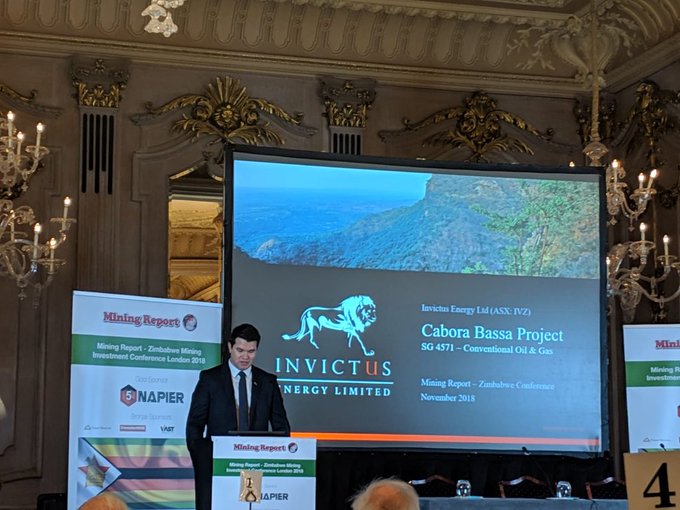Invictus eyes regional markets
AUSTRALIA Stock Exchange (ASX) listed and Zimbabwe-focused oil and gas exploration company, Invictus Energy, is already casting its eyes on the regional market, to take advantage of the significant power and looming gas shortfalls in South Africa and untapped potential in Zambia to supply gas.
The firm recently indicated that samples sent to a laboratory in the United States of America in mid-February confirmed the presence of not only natural gas, but also light oil condensate.
The natural gas is of high quality with minimal impurities and there is no hydrogen sulphate in the samples, which is an undesirable constituent in oil and gas.
Above all, the oil discovered falls into the light oil classification and this is the classification that produces diesel, petrol and jet A1, a recent update showed.
Light oil fetches higher prices and requires less refinery purification than heavy oil and produces a higher percentage of diesel and gasoline.
South Africa is expected to face gas shortages from June 2026, after Sasol announced that it would stop supplying natural gas from Mozambique.
Last week, Invictus managing director, Mr Scott Macmillan, told the African Energy Chamber, an energy advocacy group based in South Africa, that they have ambitions to expand regionally.
“We do have ambitions to expand regionally, dependent upon the ultimate reserves from our licence area, as there is a significant power and gas shortfall in South Africa and untapped potential in countries such as Zambia,” Mr Macmillan said
“We can export electricity through the Southern Africa Power Pool (Sapp) and with our project located within 100km of three major Sapp interconnectors, it provides us with the ability to export across the region using the existing infrastructure. There is also an opportunity to export gas to South Africa by joining into the Rompco pipeline from Mozambique, which has a captive market in South Africa and fetches premium pricing.
“South Africa is facing a one billion cubic foot per day shortfall in gas supply by 2030, which is obviously a huge opportunity for a resource like ours that is strategically placed to fill the void.”
Mr Macmillan noted that they envisage Mukuyu to be a phased development, consisting of an initial pilot project to provide early revenue and demonstrate proof of concept.
That will be followed by a more traditional full field development plan, to commercialise a large volume of gas through gas-to-power, gas to fertiliser and feedstock for industrial customers, as well as small-scale LNG and compressed natural gas for end users that are not proximal to the pipeline network.
“We see gas playing a critical role in the industrialisation of the country and gas-to-power is probably the biggest opportunity in Zimbabwe for us to monetise large volumes of gas, given the energy deficit in the country.
“This energy deficit is going to be exacerbated in future due to increasing energy demand from some of the intensive energy users, such as the mining houses and large industrial consumers and their need for reliable and affordable power is greater than ever and crucial for their businesses.
“500MW is just the start and it is estimated that an additional 2 500MW of new power generation is required to meet demand in the next few years.”
He further noted that due to plant site proximity to the electricity network, through a gas-to-power development, Invictus can utilise the grid as a virtual pipeline to deliver electrons to end users, which significantly reduces development cost and timeline of the initial phases of full field development.
The firm is on record indicating that the country could be sitting on more than 5,5 billion barrels of oil. A barrel of oil equivalent (boe), is a term used to summarise the amount of energy that is equivalent to the amount of energy found in a barrel of crude oil.
It said the project is one of the largest oil and gas exploration prospects to be drilled globally this year and if successful, could be transformative for the company and Zimbabwe.
In 2020, the Government classified the Muzarabani project as one of the priority development projects, which can provide a significant economic benefit to the economy in pursuit of an upper middle-income economy by 2030.-chronicle










